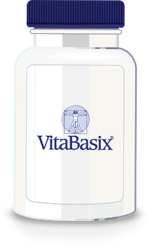Co-enzyme Q10 is also known as ubiquinone: The name refers to the “ubiquitous” occurrence of this substance in the human body, indicating the important position it plays in cell metabolism.
Co-enzyme Q10 is formed in the liver, but is also absorbed with food. It is mainly found in beef, chicken, sheep and lamb meat, fish and eggs. With increasing age, our body stops producing coenzyme Q10 in sufficient quantities.
Although too low a level of co-enzyme Q10 in the blood can be compensated for by increasing the proportion of co-enzyme Q10-rich foods such as beef or eggs in the diet, the intake of large quantities of this type of food is unfortunately also associated with an increased intake of cholesterol and unhealthy saturated fatty acids. The muscle cells have the greatest energy demand and thus the highest content of co-enzyme Q10.
The most important functions of co-enzyme Q10 are based on the numerous tasks in which the cells require energy and in the provision of which the co-enzyme is significantly involved.
General well-being / anti-aging: In general, co-enzyme Q10 can support the best possible performance and physical well-being. With age, co-enzyme Q10 levels decrease; this may be one of the many causes of ageing.
If the absorption of co-enzyme Q10 through the diet is not sufficient or there is an increased need, this nutrient can be supplemented through special food supplements.



 Chronobrands
Chronobrands



Reviews
There are no reviews yet.